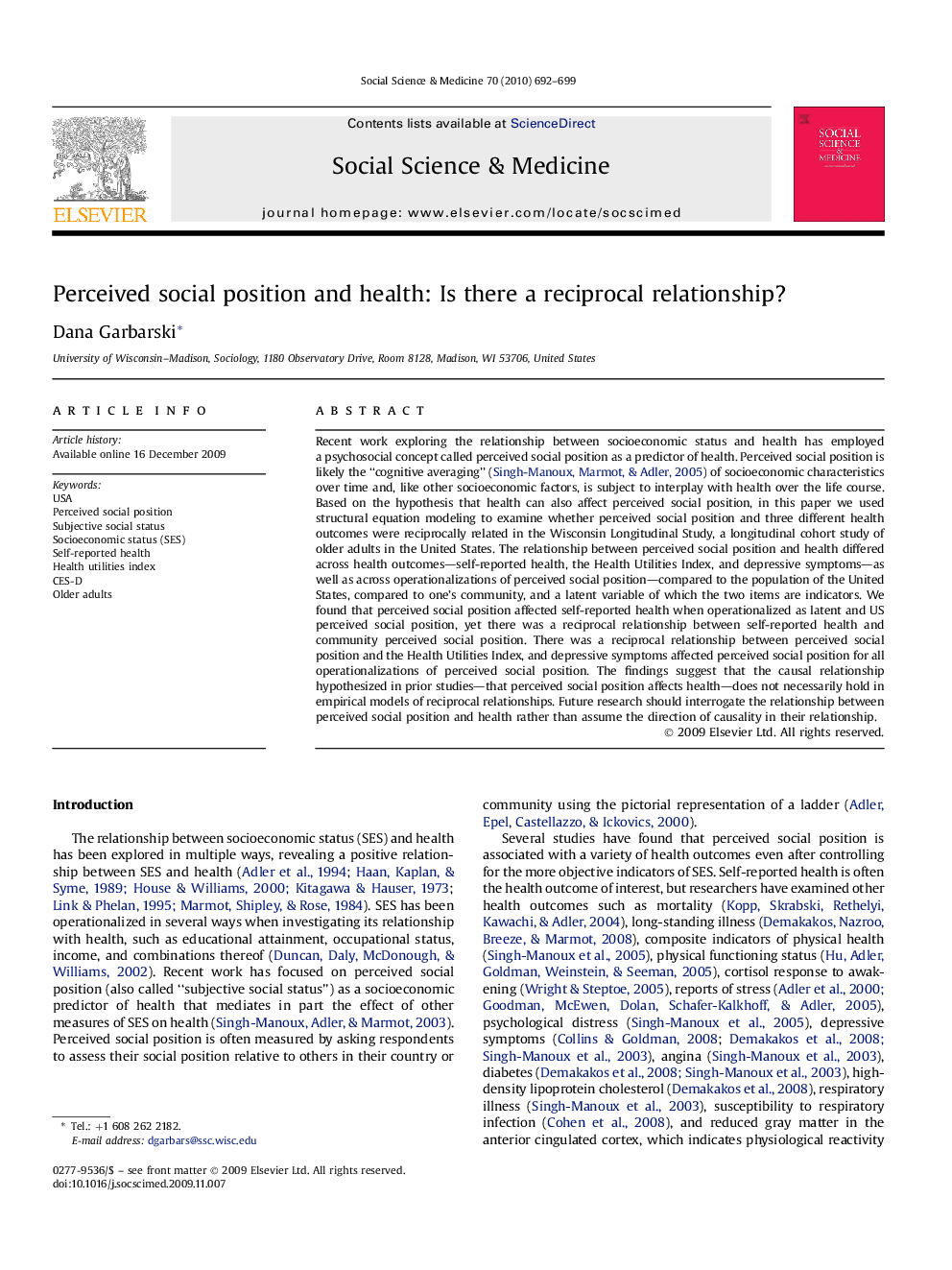| کد مقاله | کد نشریه | سال انتشار | مقاله انگلیسی | نسخه تمام متن |
|---|---|---|---|---|
| 10472049 | 927573 | 2010 | 8 صفحه PDF | دانلود رایگان |
عنوان انگلیسی مقاله ISI
Perceived social position and health: Is there a reciprocal relationship?
دانلود مقاله + سفارش ترجمه
دانلود مقاله ISI انگلیسی
رایگان برای ایرانیان
کلمات کلیدی
موضوعات مرتبط
علوم پزشکی و سلامت
پزشکی و دندانپزشکی
سیاست های بهداشت و سلامت عمومی
پیش نمایش صفحه اول مقاله

چکیده انگلیسی
Recent work exploring the relationship between socioeconomic status and health has employed a psychosocial concept called perceived social position as a predictor of health. Perceived social position is likely the “cognitive averaging” (Singh-Manoux, Marmot, & Adler, 2005) of socioeconomic characteristics over time and, like other socioeconomic factors, is subject to interplay with health over the life course. Based on the hypothesis that health can also affect perceived social position, in this paper we used structural equation modeling to examine whether perceived social position and three different health outcomes were reciprocally related in the Wisconsin Longitudinal Study, a longitudinal cohort study of older adults in the United States. The relationship between perceived social position and health differed across health outcomes-self-reported health, the Health Utilities Index, and depressive symptoms-as well as across operationalizations of perceived social position-compared to the population of the United States, compared to one's community, and a latent variable of which the two items are indicators. We found that perceived social position affected self-reported health when operationalized as latent and US perceived social position, yet there was a reciprocal relationship between self-reported health and community perceived social position. There was a reciprocal relationship between perceived social position and the Health Utilities Index, and depressive symptoms affected perceived social position for all operationalizations of perceived social position. The findings suggest that the causal relationship hypothesized in prior studies-that perceived social position affects health-does not necessarily hold in empirical models of reciprocal relationships. Future research should interrogate the relationship between perceived social position and health rather than assume the direction of causality in their relationship.
ناشر
Database: Elsevier - ScienceDirect (ساینس دایرکت)
Journal: Social Science & Medicine - Volume 70, Issue 5, March 2010, Pages 692-699
Journal: Social Science & Medicine - Volume 70, Issue 5, March 2010, Pages 692-699
نویسندگان
Dana Garbarski,